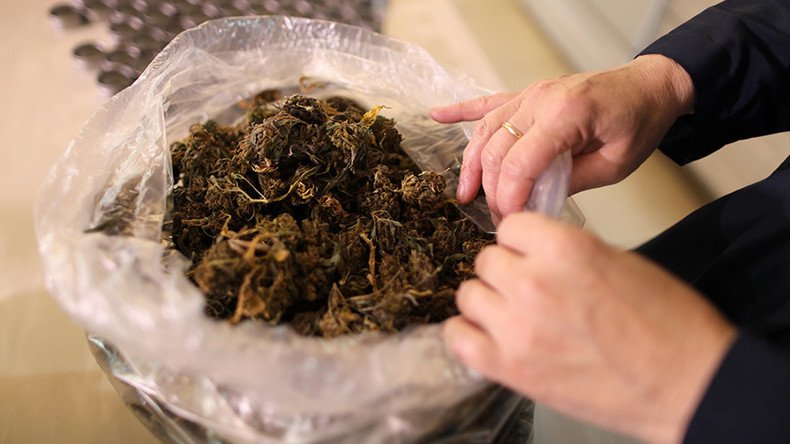Medical marijuana program ‘could save US taxpayer $1bn’ – study

A new study claims that medical marijuana use directly correlates with a decline in prescription drug use, which could save the US taxpayer up to $1.1 billion a year on Medicaid prescriptions.
The research follows up on another study carried out last year by Ashley Bradford and W. David Bradford which found that taxpayers would save half a billion dollars each year through the provision of medical marijuana.
“Patients and physicians in the community are reacting to the availability of medical marijuana as if it were medicine,” the father-daughter team wrote in their latest findings, published online this week in the Health Affairs publication. Medical marijuana is legal in 28 states and in Washington DC.
4 governors ask Trump admin to chill out on marijuana enforcement https://t.co/3mLt1hHLbb
— RT America (@RT_America) 4 апреля 2017 г.
“Using quarterly data on all fee-for-service Medicaid prescriptions in the period 2007–14, we tested the association between those laws and the average number of prescriptions filled by Medicaid beneficiaries,” the researchers wrote.
The revised estimates in the latest study are even more optimistic, and predict that if medical marijuana was made available nationwide it would lead to: an 11 percent drop in prescriptions for pain medication, including opioids; a 17 percent drop in prescriptions for nausea medications; a 13 percent drop in depression medication prescriptions, and a 12 percent decrease in both anti-seizure and anti-psychotic medications.
All of which would amount to a total savings of up to $1.1 billion to the US taxpayer.
DEA approves synthetic #marijuana for big pharma company against legalization https://t.co/5NR6ETznnUpic.twitter.com/pbHRPEHhBi
— RT (@RT_com) 25 марта 2017 г.
A study published on April 1 in the Journal of Drug and Alcohol Dependence also found that states which have legalized medical marijuana have seen an overall reduction in opioid-related hospitalizations per capita compared with those where the drug is still illegal, even for medicinal purposes.
The researchers did concede that a uniform replacement of FDA-approved treatments with medical marijuana across the board would be harmful.
However, they also disputed the Drug Enforcement Agency’s Schedule 1 classification of the drug which is reserved for drugs that have no “currently accepted medical use[s].”
US Attorney General Jeff Sessions has been a noted critic of marijuana legalization, claiming that “there’s more violence around marijuana than one would think,” in a meeting with reporters in February, as cited by CBS. He has also expressed surprise that the American people do not support his anti-marijuana stance.












